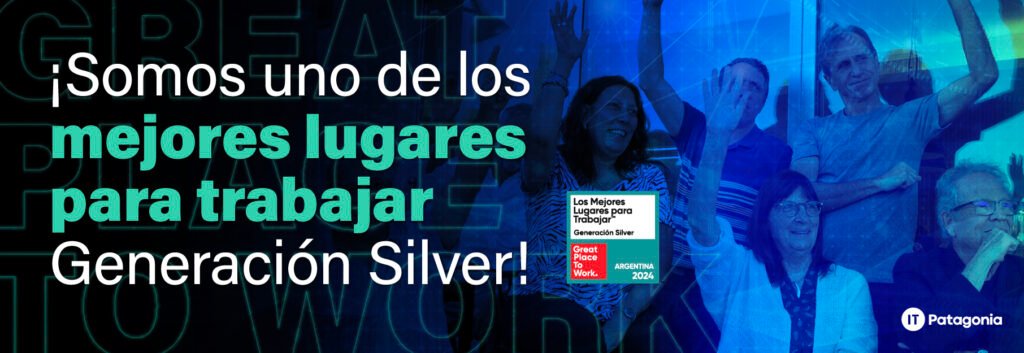Keys to forming successful Mainframe and Cobol teams
High competition for talent presents significant challenges for organizations. Even more so in the technology industry, and especially niches in which the availability of professionals is reduced year by year, as is the case with Mainframe and Cobol specialists.
Therefore, attracting and training the best professionals and creating effective teams requires, as a basis, offering a attractive scheme in terms of salaries, benefits and development opportunities.
It also involves the creation of a organizational culture that promotes motivation, satisfaction, commitment and loyalty of collaborators, and provide challenges for constant improvement.
The challenge of building successful Mainframe and Cobol teams involves several facets, challenges and possible solutions, which we analyze in this article. We also share the lessons we have learned from our twenty years of experience training talent specialized in these technologies.
The problem of talent shortage
As we have seen from our experience in the sector, Two of the profiles with the greatest shortage and hiring difficulties are Mainframe analysts and Cobol programmers., involved in almost the 70% of production IT workloads of the world.
As we have mentioned on other occasions, The lack of availability of these talents is critical, as it impacts 88% of the banks that make up the World's Top 50 Banks ranking and the 67% from Fortune Top 100 Companies.
The scope of both roles explains the importance they have not only for the IT field, but for all industries across the board.
While a Mainframe analyst is responsible for maintaining and managing large-scale infrastructure-based computer systems, Cobol programmers write and modify code to create programs that handle large volumes of data and critical business processes.
Due to the large impact generated by the shortage of these professionals, it is necessary to know why.
The trend can be explained by the aging of the skilled workforce and the Lack of attractiveness of the new generations in these technologies.
On the one hand, many of the Cobol and Mainframe experts are close to retirement: the average age worldwide for these specialists is over 55 years.
Another big problem to solve is the scarce existence of educational programs focused on developing these skills. Universities that focus on this area of knowledge essential to the IT industry are less than 3 in 10.
However, there is another factor that conspires against the development of expert talent. Young professionals tend to prefer to learn and work with technologies considered more modern and popular.
The lack of interest of the new generations towards Mainframe and Cobol is influenced by the perception of obsolescence that has been generated in relation to these technologies.
A perception that leads to ignoring the enormous impact they have today, especially in sectors such as banking, telecommunications, retail and government.
And that, furthermore, is not verified in reality, since Both Mainframe and Cobol are technologies that are constantly evolving..

Challenges facing competition for IT talent
As a result of the context we are explaining, organizations face the challenge of ensure the continuity and efficiency of its systems, to avoid negative impacts on its operations and safety.
To overcome this, they must address the challenges of retaining talent:
- overcome constant and broad competition,
- need to differentiate themselves through benefits and other attractive policies,
- provide an accepted balance between work and personal life.
These challenges can be overcome being a flexible company, with a pleasant work environment, career plans, an inclusive culture and recognition of individual and group commitment.
The key is to develop policies and work spaces that build employee loyalty, who are attracted by constant offers from competitors. The downside of these strategies is that they can lead to increased labor costs, given the need to offer more attractive salaries and benefits.
A second primary objective is avoid high turnover, which can affect the continuity of projects and all the problems that this can entail.
Finally, it is not enough to attract and retain IT talent. It is also – and fundamentally – it must be formed.
Companies must invest in education and resources to ensure adequate training of their teams. This solution involves a medium-term process, since training new talent takes time and requires overcoming a learning curve that allows them to reach a level that often does not match the urgency of the position.
In parallel, organizations need to work on changing the perception of these technologies, to highlighting its differential values and the professional stability they can offer in an ever-changing technological world.

Why it is difficult to attract, retain and train talent in Mainframe and Cobol
As we have been saying, attracting, training and retaining professionals is hard work.
One factor is that recruiting processes are extensive and expensive.
Another is that, as a result of the globalization of IT talent services, local and international competition is increasingly stronger.
This scenario forces companies to constantly reconfigure an attractive culture that builds loyalty among people, in addition to being in permanent and direct contact with customers. Digital profiles most in demand by the labour market.
Ideas for building talented teams
Aware of the complexity that arises in terms of Mainframe and Cobol talent, at IT Patagonia we developed our own proposal for Talent acquisition, training and retention.
How does it work? We are basically a bridge that connects organizations looking for talent for their teams and people interested in entering the IT world or developing their programming skills.
We seek motivated talent and train them in the skills that the labor market requires to cover needs related to Mainframe and Cobol.
Our method is composed of four phases:
- Survey: technical and soft aspects of the profile that needs to be filled are analyzed, as well as knowledge of the company's organizational culture in relation to the position.
- Feasibility: the match between the ideal profile and the offer available on the market is evaluated, with the support of specialists.
- Investigation: We involve the best methods, tools and platforms of specialized hunters.
- Match: We determine the ideal technical profile, including a description of the soft skills we need for the position, with special emphasis on orientation towards change.
We already have More than 1,000 people trained by More than 25 teachers and mentors, and More than 15 technological specialization courses. Always from a gender perspective and in alliance with other organizations.
This is how we build successful teams
As we explained previously, the global demand for jobs in the technology sector continues to grow, but careers in this area are still have low enrollmentAnd this trend is further deepened if we focus on Mainframe analysts and Cobol programmers.
With our training service we focus on facilitating people's access to their first IT job. On the one hand, We attract talent motivated to enter the IT world and train them in the skills that the labor market requires..
These training courses are generally aimed at young people who are taking their first professional steps, and also at People from the silver generation who want to transform their career path.
In addition, we train professionals with experience in programming who are interested in reconfiguring their skills.

Our culture of innovation, sustainability and focus on people creates a attractive environment that retains and motivates our specialists, and ensures success and continuity in our projects.
From the beginning of this proposal we set out to promote the development of talent and the industry at a regional and global level. To meet these objectives, the training service that we provide together with our partner Codeki It has three phases:
1) In a first stage of scouting We evaluate the technical aspects and soft skills of each candidate to match the client's needs.
2) Based on this survey, we begin the training phase of Reskilling and upskilling, which provides intensive training so that people acquire the necessary skills demanded by today's market, in a short time.
3) The third stage focuses on the mentoring. Each person's development is supported by mentoring by professionals with extensive experience, until they reach the expected seniority.
Our practical approach ensures that participants acquire both theoretical knowledge and practical skills essential for real-world work environments.
The results obtained fill us with pride:
- +1500 training scholarships (21% for women)
- +400 jobs created (43% for women)
- +250 first jobs (41% of women)
- +400 people mentored
Conclusion
Competition for talent leads companies to be increasingly strategic and innovative in their talent management practices, in order to remain competitive in the labor market.
Especially in segments where the availability of professionals is much lower than the demand, as is the case with Mainframe and Cobol experts.
That is why organizations must promote work-life balance, create an inclusive and positive work environment, and invest in professional development programs that not only offer their teams an opportunity for growth, but also contribute to solving the talent shortage problem we face.
Learn how Finding the Mainframe and Cobol talent you need to evolve.

